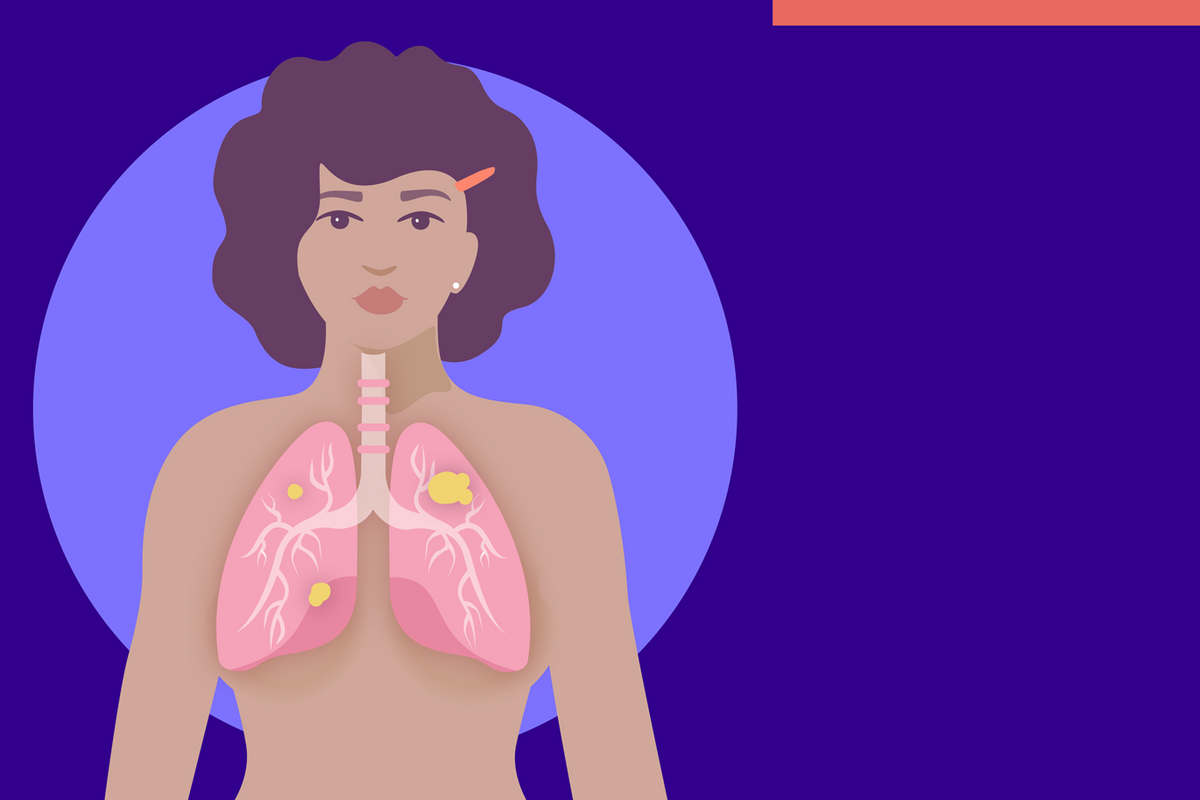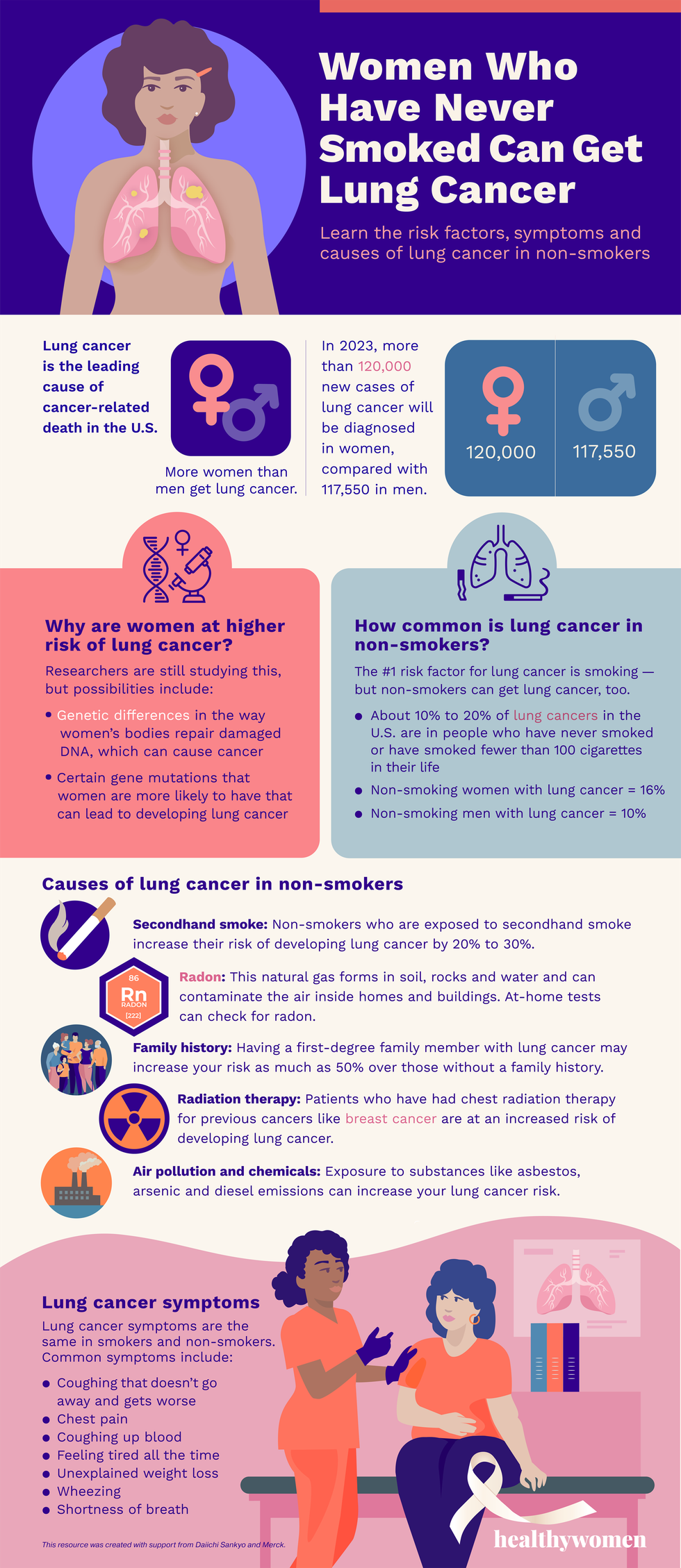Lung cancer is the leading cause of cancer-related death in the U.S.
More women than men get lung cancer.
- In 2023, more than 120,000 new cases of lung cancer will be diagnosed in women, compared with 117,550 in men
Why are women at higher risk of lung cancer?
Researchers are still studying this, but possibilities include:
- Genetic differences in the way women’s bodies repair damaged DNA, which can cause cancer
- Certain gene mutations that women are more likely to have that can lead to developing lung cancer
How common is lung cancer in non-smokers?
The #1 risk factor for lung cancer is smoking — but non-smokers can get lung cancer, too.
- About 10% to 20% of lung cancers in the U.S. are in people who have never smoked or have smoked fewer than 100 cigarettes in their life
- Non-smoking women with lung cancer = 16%
- Non-smoking men with lung cancer = 10%
Causes of lung cancer in non-smokers
- Secondhand smoke: Non-smokers who are exposed to secondhand smoke increase their risk of developing lung cancer by 20% to 30%.
- Radon: This natural gas forms in soil, rocks and water and can contaminate the air inside homes and buildings. At-home tests can check for radon.
- Family history: Having a first-degree family member with lung cancer may increase your risk as much as 50% over those without a family history.
- Radiation therapy: Patients who have had chest radiation therapy for previous cancers like breast cancer are at an increased risk of developing lung cancer.
- Air pollution and chemicals: Exposure to substances like asbestos, arsenic and diesel emissions can increase your lung cancer risk.
Lung cancer symptoms
Lung cancer symptoms are the same in smokers and non-smokers. Common symptoms include:
- Coughing that doesn’t go away and gets worse
- Chest pain
- Coughing up blood
- Feeling tired all the time
- Unexplained weight loss
- Wheezing
- Chest pain
- Shortness of breath
This resource was created with support from Daiichi Sankyo and Merck.
From Your Site Articles
- Lung Cancer 101 ›
- Lung Cancer Kills an Alarming Number of Women — But There’s Hope ›
- Why Are Women Who Never Smoked Getting Lung Cancer? ›
- Racial Disparities in Lung Cancer Screening - HealthyWomen ›
- I’m a Non-Smoker with Stage 4 Lung Cancer - HealthyWomen ›
- Why Are More Non-Smokers Getting Lung Cancer? - HealthyWomen ›
Related Articles Around the Web






